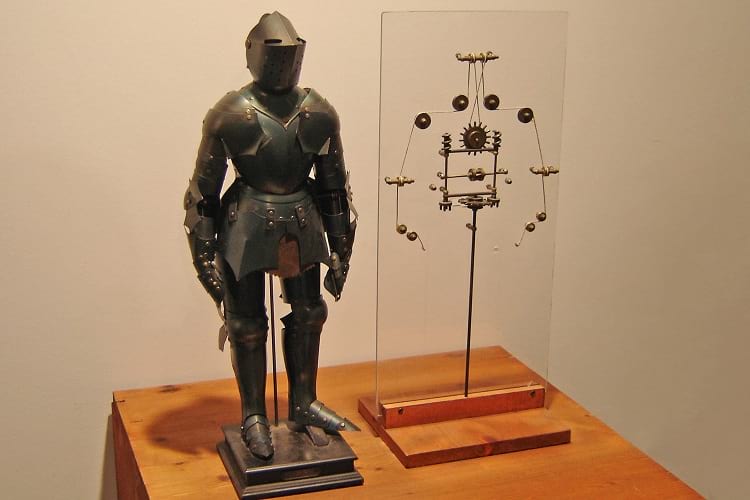Can There Be a Better Closure to Old Age than Exile of Ubasute?
Share
Old age has been an anathema since times immemorial, yet there is no escaping it. Human society always dealt with ‘death’ in a benign and a socially relevant way, but aberrations happen in on ground execution of benevolent ideas. Ubasute is one such aberration. A legacy of Japan’s folklore, it literally means ‘abandoning a parent’. Leaving a senile relative at far-off desolate place (granny dumping) where she/he can slowly fade into death from exigencies of a homeless environment. Reference in general is to mother, a relationship closest to human heart. An apocryphal practice of Japan, spirit of ubasute resonates all over the world.
Ubasute: Folklore
There was a king, says a Japanese folk story, who hated the old and mandated that all above 70 men and women be left to die on a hilltop in a thick forest range. This set into motion the practice of Ubasut. One minister, who loved his mother immensely, secretly trespassed this dictate. He hid his mother underground in the house instead of deserting her to the killing hilltop. The King then faced a critical challenge from a hostile neighbour to solve a riddle failing which he would be attacked and enslaved.
The petrified King sought help of the minister. The riddle/challenge was to inspect a pair of horses and tell offspring from the parent. Both horses looked alike and it was hard to say who was the father and who was the son. The minister apprised his aged-underground mother with the problem and sought her advice in finding a solution.
Mother suggested: Lay green fodder between 2 of them, one that steps back to let the other eat is the father. The man conveyed the solution to the King and he acted accordingly, resulting in the identification of the horses as demanded of him. King felt grateful as the cerebral exercise saved his kingdom. But at the same time he suspected that his minister couldn’t have solved the puzzle on his own. There seems to be some other brain behind the solution, said the King.
The minister confessed that it was her aged mother and that he was guilty of trespassing on the practice of Ubasute. King was so impressed that he banned the practice of Ubasute outrightly. And realization dawned on everyone that the elders have a reliable intellect and hence they shouldn’t be gotten rid of in spite of their sick and weak physical frame.
Ubasute: Outside Japan
Not just in Japan, problems of the elderly, as reflected in folklores worldwide, are the same everywhere. Moral of the stories is also the same, that the elders must be loved and cared for. In an altered version of the above story, riddles asked to be solved are different.
Surprisingly, the origin of these folklores is India. It is believed that the Buddhist monks were instrumental in spreading of these stories to the outside world. Of many such stories popular in Indian households, one is about a lovelorn youth. His lady love charged him to bring his mother’s heart as a gift for her. Then and then only would she marry him.
Blinded in her love, the youth kills his mother and removes her heart as a trophy to be presented to his sweetheart. On way, the boy stumbles over a pothole and falls down. Mother’s heart is flung aside and as the boy moves to pick it up, it comes to life and says: Son, I hope you aren’t hurt. The message obviously hits home poignantly for the protagonist of the story as well as the masses who heard these ballads from generations to generations.
In another Japanese story, a man returns from hill top after dumping his old mother but the sun has set and he loses his way down. Just then his glances at the spread of broken twigs and leaves on way. He recalls that on way up his mother was consistently snatching at foliage overhead and scattering it on the way he trudged. By connecting with the green spread on way he could work out the lost path and that rang a bell: I took my mother on way to death, even then she took care to ensure my safe return to home. Overcome with emotion, the boy ran back to his mother, picked her up and brought her home.

Painting of a man carrying an old woman on top of the hill to be abandoned. (Yoshitoshi / Wikimedia Commons)
The larger perspective of ubasute, it seems, is dedicated care for the elderly. Does it lie in putting them on way to speedy death? Many choose death (even assisted suicide) to prangs of debilitating old age even today indicates that ubasute may have been in vogue in distant past when life was comparatively much more exigent than the present times.
Objectives then may have ranged from saving available resources for the younger members of the family to honouring expressed desire of death in the old and the ailing. And stories were spun around Hobson’s choice between death and painful existence for the senile seniors. Tales carry a message of filial piety while acknowledging that filial apathy, especially in respect of doddering olds, has marked the march of Human Civilization since the Stone Age.
Hindu way of living chronicles 4 phases of human life: Brahmacharya (student life, celibacy), Grahasth (marriage and family life), Vanprasth (gradual detachment from worldly affairs) and Sanyas (renouncing the world and moving to jungles to lead a wanderer’s life till death). Ubasute being a corrupted version of Sanyas, can’t be ruled out.
Respect for the Aged day
Each year, third Monday of every September is celebrated as ‘Respect for the aged day’. It is a national holiday in Japan. In the US, Grand Parent’s day is celebrated on first Sunday falling after Labor Day in the month of September. In India, we celebrate the international day of older persons on October 1st. United Nations has declared June 15 as World Elder Abuse Awareness Day (WEAAD) for an appraisal of physical, emotional and financial abuse of elders.
An antithesis of ubasute; is it? Indeed, no one now talks of ‘abandoning a parent’. World salutes the elderly and accepts them as a productive unit of human society to the last day of their life. Negatives of social mores too have a positive message for the humanity. Like positives tell us what we must do, negatives tell us what needs to be eschewed and discarded.
Enjoyed this article? Also, check out “Japan’s Declining Population: A Wonderful Country with a Problematic Future“.
Fact Analysis:
STSTW Media strives to deliver accurate information through careful research. However, things can go wrong. If you find the above article inaccurate or biased, please let us know at [email protected]













